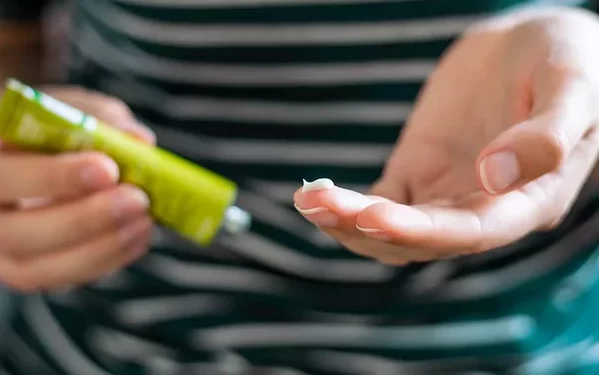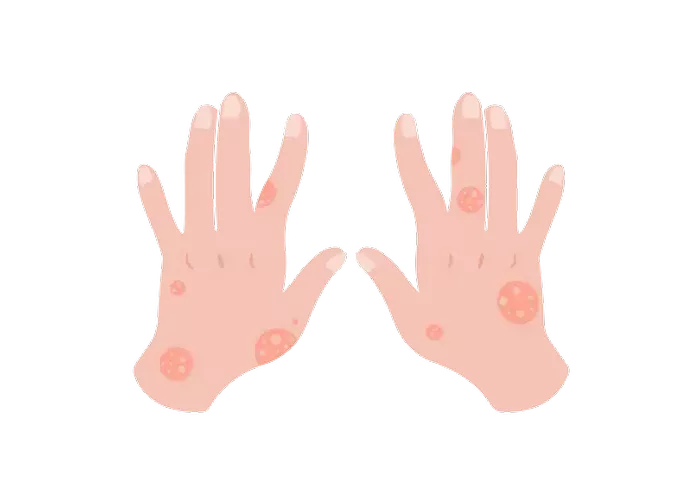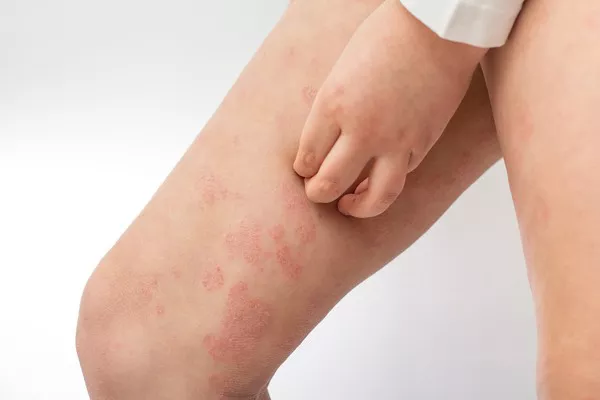Ringworm is a common fungal infection that affects the skin, hair, and nails. Despite its name, it is not caused by a worm but by a fungus. The infection typically appears as red, ring-shaped patches on the skin, and while it is highly treatable with antifungal medications, many people wonder how long ringworm can last if left untreated.
In this article, we will explore the duration of untreated ringworm, factors that affect its persistence, and the risks associated with leaving it untreated.
What is Ringworm?
Ringworm, also known as tinea, is a fungal infection caused by dermatophytes, a type of fungus that thrives on the skin, hair, and nails. There are several types of ringworm, depending on where the infection occurs:
Tinea corporis: Affects the body
Tinea pedis: Affects the feet (athlete’s foot)
Tinea capitis: Affects the scalp
Tinea cruris: Affects the groin area (jock itch)
Tinea unguium: Affects the nails
Ringworm is highly contagious and can be spread through direct contact with an infected person, animal, or contaminated objects. It can also spread from soil that is infected with the fungus.
How Long Can Ringworm Last Without Treatment?
The duration of ringworm depends on various factors, including the type of ringworm, the immune system of the infected person, and the environment where the infection is located.
In general, untreated ringworm can last anywhere from several weeks to several months, and in some cases, it may persist for even longer. However, the infection often gets worse over time if it is not treated.
Mild Cases of Ringworm
In mild cases, ringworm may only last a few weeks. The infection may appear as small, circular patches on the skin that can gradually enlarge and spread. If untreated, the infection may persist for several weeks, but it is more likely to become worse over time.
Severe Cases of Ringworm
In more severe cases, untreated ringworm can last several months or longer. The infection may spread to larger areas of the body or become more intense, causing more symptoms. The skin may become inflamed, irritated, and itchy, and the infection may develop into a more chronic condition that requires medical treatment.
How Does Ringworm Spread and Why Does It Last?
Ringworm is contagious, meaning it can spread from one person to another. The fungus that causes ringworm thrives in warm, moist environments. This is why it is common to see ringworm infections on the feet (athlete’s foot) and groin area (jock itch), especially in people who frequently wear tight clothing or shoes. The fungus can also spread through contact with contaminated surfaces, towels, and bedding.
The infection can last longer if it is not treated because the fungus can survive on the skin and spread to other areas. Ringworm can also persist longer in people with weakened immune systems, such as those with HIV or other chronic conditions.
Why It Is Important to Treat Ringworm Early
While ringworm can last for a long time without treatment, it is essential to seek treatment early to prevent complications. Here are some reasons why early treatment is important:
Prevent the Spread
If left untreated, ringworm can spread to other parts of your body or to others. The fungus can be transferred through direct contact or by touching surfaces that have come into contact with the infected skin.
Preventing Secondary Infections
Untreated ringworm can lead to secondary bacterial infections. The skin may become so irritated and inflamed that it cracks, which can provide an entry point for bacteria. This can result in further health complications that are more difficult to treat.
Faster Healing with Treatment
The longer you leave ringworm untreated, the longer it will take to heal, even if you eventually start treatment. By treating it early, you can speed up the healing process and reduce the risk of spreading the infection to others.
Reduce the Risk of Chronic Infection
In some cases, untreated ringworm can become a chronic infection, especially if the fungus is not eliminated. Chronic ringworm infections may require stronger treatments and take longer to resolve.
Factors That Affect the Duration of Untreated Ringworm
There are several factors that can influence how long ringworm lasts without treatment. These include:
Immune System Health
People with a weakened immune system may experience more severe and prolonged cases of ringworm. This includes individuals with conditions like diabetes, HIV, or those taking immunosuppressive drugs. A strong immune system can fight off the fungus more effectively, while a weakened immune system may allow the infection to persist for a longer time.
Type of Ringworm
The type of ringworm also plays a role in how long it lasts. For instance, tinea corporis (ringworm on the body) may clear up relatively quickly without treatment, while tinea capitis (scalp ringworm) can last much longer and may cause hair loss if not addressed.
Location of the Infection
Ringworm on areas of the body that are difficult to treat, like the scalp or groin, may last longer if untreated. The fungus may have a harder time being eliminated from these areas because of the warm, moist conditions or the hair follicles in these regions.
Hygiene and Environment
Poor hygiene and living conditions can contribute to the persistence of ringworm. If you are in contact with contaminated surfaces, animals, or other people who have the infection, it can prolong the infection and increase the chance of re-infection. Maintaining clean, dry skin and avoiding contact with infected areas can help reduce the spread and duration of the infection.
How to Recognize Ringworm
Ringworm presents as red, circular patches with a raised edge. The center may appear clear or slightly scaly. It may cause itching, burning, or tenderness. The infection can spread to other parts of the body, especially in moist, warm environments like the groin or feet.
If you notice any of these symptoms, it is important to seek medical advice, even if the infection does not seem severe. Treating ringworm early can prevent it from becoming a long-term problem.
Complications of Untreated Ringworm
While ringworm is generally not a life-threatening condition, leaving it untreated can lead to several complications. These may include:
Spread to Other People
Ringworm is highly contagious, so untreated cases can quickly spread to others, especially in environments like schools, gyms, or households. If the infection spreads, it can become more challenging to control.
Hair Loss
In cases of scalp ringworm (tinea capitis), untreated infections can cause hair loss. The fungus infects the hair follicles, causing patches of hair to fall out. This can result in permanent scarring and hair loss if the infection is not treated promptly.
Chronic or Recurrent Infections
For some people, untreated ringworm may turn into a chronic or recurring problem. The fungus may never fully go away, and you may experience frequent outbreaks. This is more likely in individuals with weakened immune systems or those who do not seek treatment.
Secondary Bacterial Infections
If ringworm causes significant irritation, the skin may break open, allowing bacteria to enter and cause a secondary infection. This can lead to abscesses or cellulitis, which may require additional treatments like antibiotics.
Treatment for Ringworm
Treatment for ringworm is simple and effective. Over-the-counter antifungal creams, powders, and sprays can help treat mild cases. For more severe or persistent cases, oral antifungal medications may be prescribed by a doctor.
To speed up recovery, it is important to keep the affected area clean and dry. Avoid sharing towels, clothing, or personal items with others, and wash your bedding and clothes frequently to prevent reinfection.
Conclusion
While untreated ringworm can last anywhere from a few weeks to several months, it is important to seek treatment early to avoid complications and speed up healing. If you suspect you have ringworm, consult a healthcare provider for proper diagnosis and treatment. With the right treatment, ringworm can be cured, and you can avoid the long-term effects of leaving it untreated.
Related topics:


























